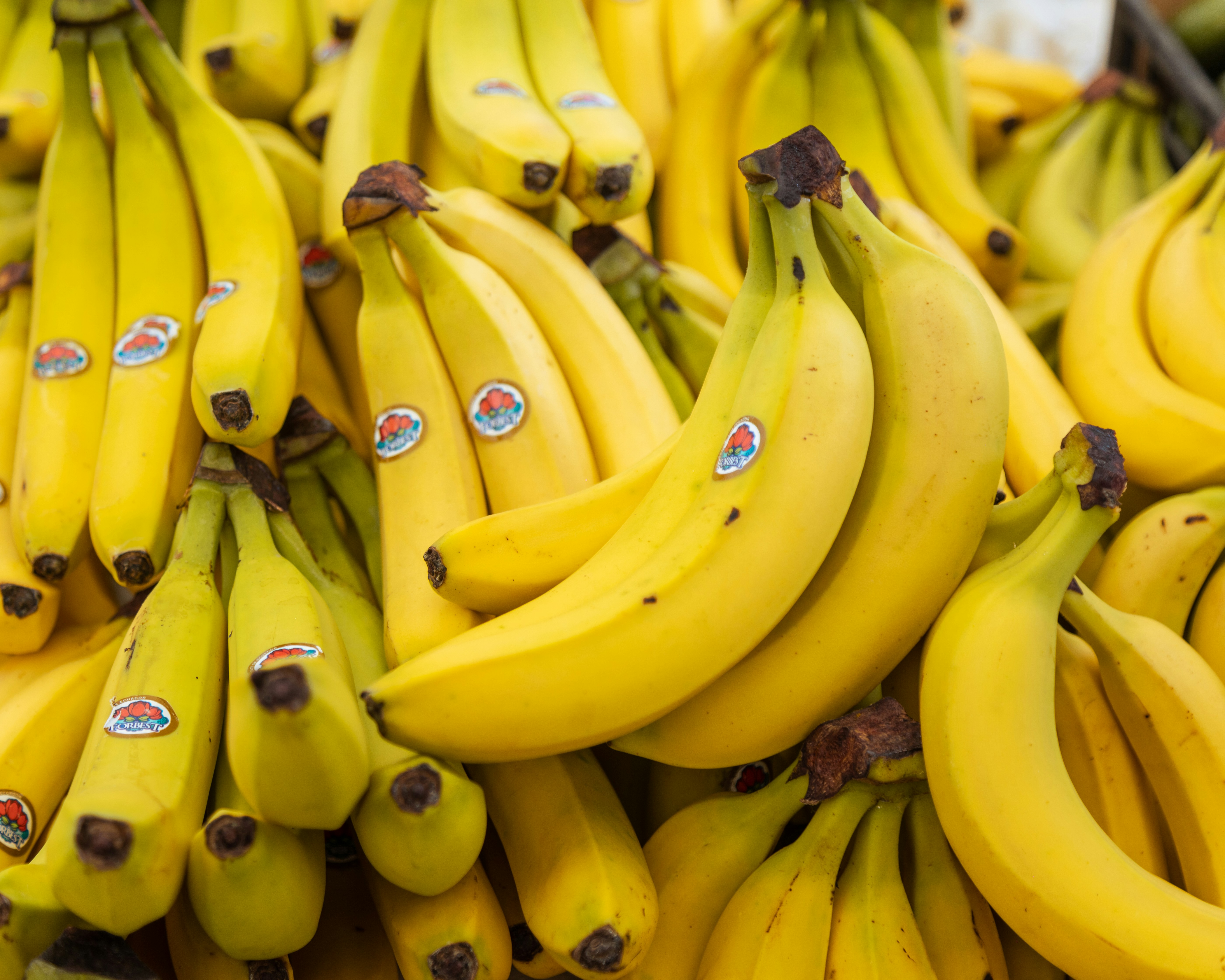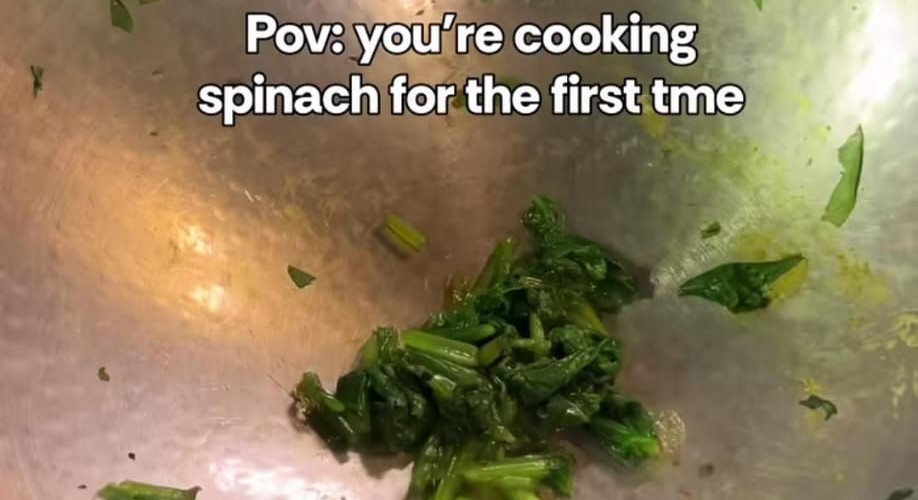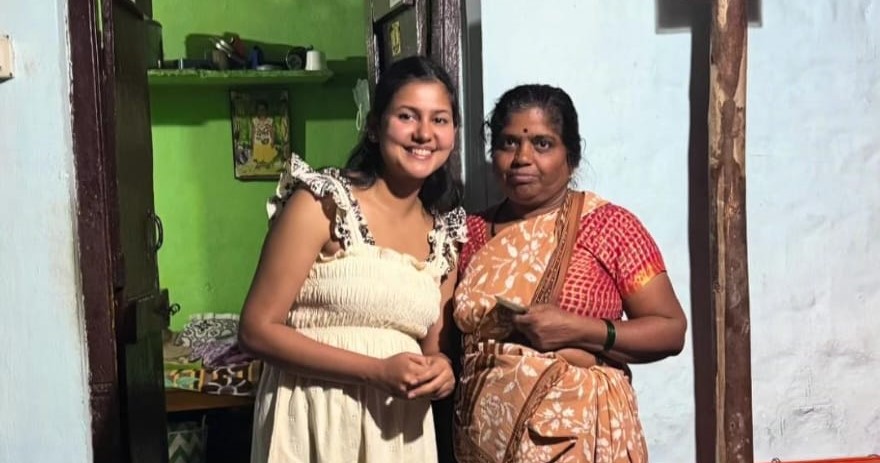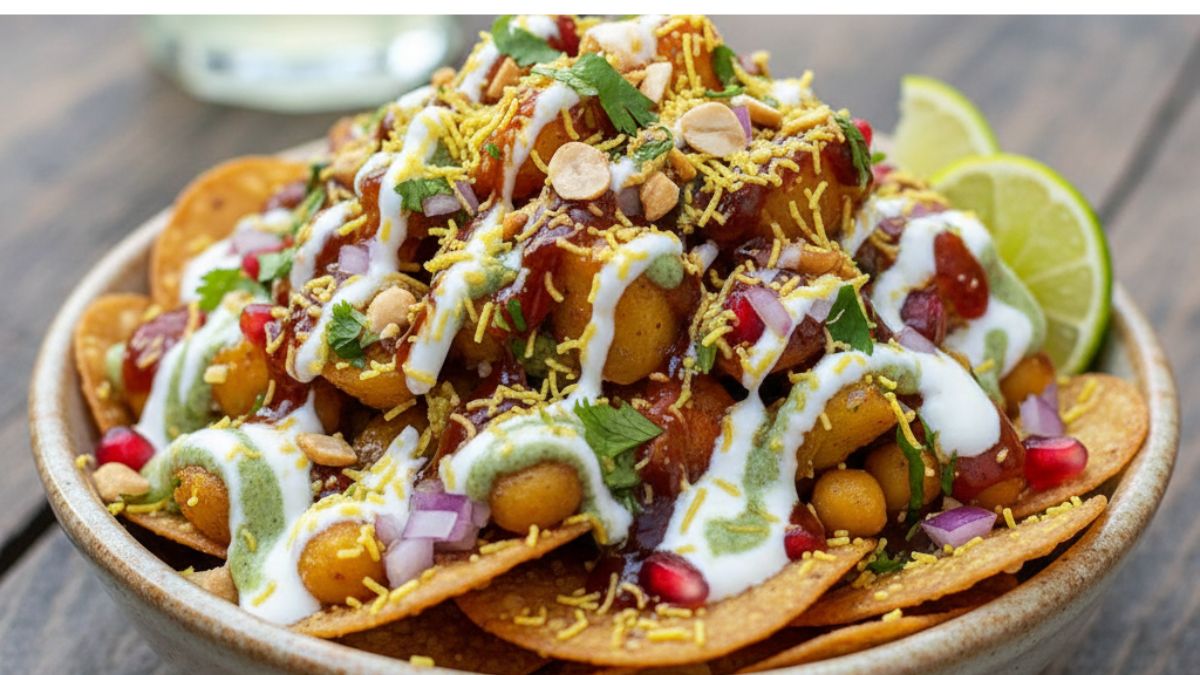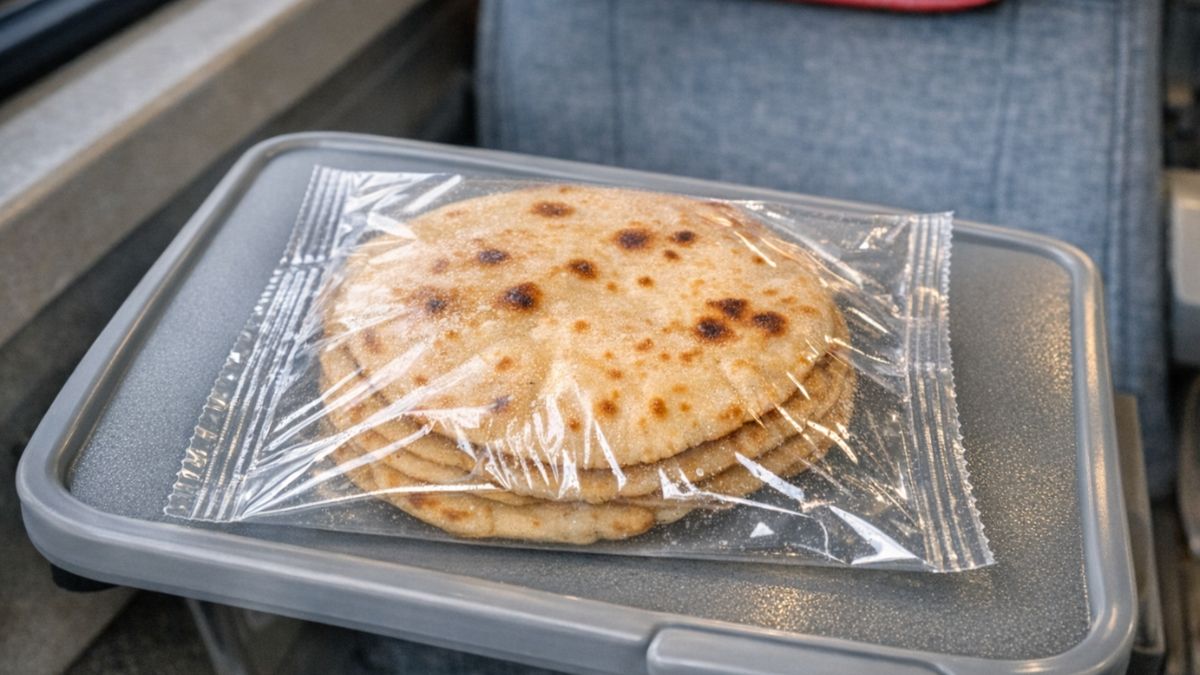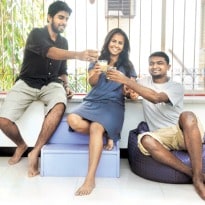Vegans across Mumbai are networking big time over potluck parties, cook-offs and cycling expeditions to make sure they support each other.Even before Monika Siriya answers her door, I can hear dogs barking in the background. "That's Rapchik and Dhinchak," says the 29-year-old, pointing to her two pet dogs who are now busy wagging their tails. "They are vegan too," she says. Monika, an entrepreneur, and her husband Chintan, a CSR consultant, are recent converts, having moved to a vegan lifestyle since 2010.In Picture/ Three cheers: Entrepreneur Monika (centre) and CSR consultant Chetan Siriya (right) join fellow vegan Chidanand Hiremath (left), a web developer and photographer, for some delicious cold coffee made with soya milk. Pic/Nimesh Dave
When we visit the Siriya residence, preparations are on for a potluck party, a monthly event. She has prepared a chocolate cake and strawberry ice cream. But none of the items have eggs, milk or even butter. "People feel it is really tough to be a vegan as you have to give up on a lot of foods, which is not true at all. If you learn to replace some ingredients, you can have all your favourite dishes. They'll only taste better," she says, offering me a cup of tea with cashew milk. Strawberry ice cream without any dairy products by Monika Siriya. Pic/Nimesh DaveThe couple has not only given up dairy products in their diet, but discarded using any animal-made products such as leather and turned environment-friendly even for items such as shaving cream, natural oils and toothpaste. They even wash their clothes in reetha instead of detergent and extend support to many new vegans through social media networks and give free lectures to whoever invites them.What seemed to be an underground movement of sorts a few years ago, has today turned into a widespread lifestyle that people are choosing for their health and for environmental purposes. In fact, as we discover, Mumbai's vegans are bonding with likeminded individual through virtual groups that meet up for potlucks, treks, picnics and share information too. Monika Siriya makes almond milk at her Kandivli residence. Pic/Nimesh Dave"It is a good time to turn vegan," says Chintan, adding that he hears about a friend turning vegan almost every week. "These are the people who are realising that the change for a healthier life and a better environment lies inside them. The moment I turned vegan, my acidity problems have never given me a sleepless night. To add to that, my wife and I have not fallen ill in the past two years. Our doggy Rapchik had a severe heart ailment when we adopted her. Today, her reports are excellent," smiles Chintan.Take the case of 28-year-old Rithika Ramesh, who runs a vegan bakery, the Green Stove, since 2010. She knew just about a dozen or so fellow vegans in the city when she chose to give up dairy products in 2009. "I didn't even know what the term meant. I read about going vegan online and attended a seminar by Dr Nandita Shah, founder of Sharan, a health awareness non-profit organisation, and one of the pioneers of the vegan movement in India. Richa Rungta and her friend Akriti Tobhal dig into a vegan bagel at Bagelwala in Bandra. Pic/Shadab KhanToday, I am connected to at least 200 vegans on a regular basis. It's awesome to know there are so many people who share your way of life and are approachable," says the chef. Her cakes replace eggs with oil and flavseed, condensed milk with soy or cashew milk, and uses non-dairy whipped cream available in the market. Since the past three weeks, she has been shooting vegan recipe videos for a YouTube channel, India Food Network, and has also started supplying her vegan delights to Bagelwala in Bandra. "Once a month we host potluck parties, and it's amazing how this network is growing. People are really passionate about their vegan choices," smiles Ramesh, who has demonstrated healthy gajar halwa, vegan pesto pasta and tandoori mushroom recipes on the channel.Amit Mehta founded Unived in July 2012. The company manufactures Omega-3 pills using micro algae instead of fish oil. Pics/Pradeep Dhivar
When we visit the Siriya residence, preparations are on for a potluck party, a monthly event. She has prepared a chocolate cake and strawberry ice cream. But none of the items have eggs, milk or even butter. "People feel it is really tough to be a vegan as you have to give up on a lot of foods, which is not true at all. If you learn to replace some ingredients, you can have all your favourite dishes. They'll only taste better," she says, offering me a cup of tea with cashew milk. Strawberry ice cream without any dairy products by Monika Siriya. Pic/Nimesh DaveThe couple has not only given up dairy products in their diet, but discarded using any animal-made products such as leather and turned environment-friendly even for items such as shaving cream, natural oils and toothpaste. They even wash their clothes in reetha instead of detergent and extend support to many new vegans through social media networks and give free lectures to whoever invites them.What seemed to be an underground movement of sorts a few years ago, has today turned into a widespread lifestyle that people are choosing for their health and for environmental purposes. In fact, as we discover, Mumbai's vegans are bonding with likeminded individual through virtual groups that meet up for potlucks, treks, picnics and share information too. Monika Siriya makes almond milk at her Kandivli residence. Pic/Nimesh Dave"It is a good time to turn vegan," says Chintan, adding that he hears about a friend turning vegan almost every week. "These are the people who are realising that the change for a healthier life and a better environment lies inside them. The moment I turned vegan, my acidity problems have never given me a sleepless night. To add to that, my wife and I have not fallen ill in the past two years. Our doggy Rapchik had a severe heart ailment when we adopted her. Today, her reports are excellent," smiles Chintan.Take the case of 28-year-old Rithika Ramesh, who runs a vegan bakery, the Green Stove, since 2010. She knew just about a dozen or so fellow vegans in the city when she chose to give up dairy products in 2009. "I didn't even know what the term meant. I read about going vegan online and attended a seminar by Dr Nandita Shah, founder of Sharan, a health awareness non-profit organisation, and one of the pioneers of the vegan movement in India. Richa Rungta and her friend Akriti Tobhal dig into a vegan bagel at Bagelwala in Bandra. Pic/Shadab KhanToday, I am connected to at least 200 vegans on a regular basis. It's awesome to know there are so many people who share your way of life and are approachable," says the chef. Her cakes replace eggs with oil and flavseed, condensed milk with soy or cashew milk, and uses non-dairy whipped cream available in the market. Since the past three weeks, she has been shooting vegan recipe videos for a YouTube channel, India Food Network, and has also started supplying her vegan delights to Bagelwala in Bandra. "Once a month we host potluck parties, and it's amazing how this network is growing. People are really passionate about their vegan choices," smiles Ramesh, who has demonstrated healthy gajar halwa, vegan pesto pasta and tandoori mushroom recipes on the channel.Amit Mehta founded Unived in July 2012. The company manufactures Omega-3 pills using micro algae instead of fish oil. Pics/Pradeep Dhivar
No more fish oilWith awareness spreading fast, initiatives and sustainable businesses are also looking into vegan options. Amit Mehta, for instance, founded Unived Healthcare, which manufactures and retails herbal and vegan products, last July. "We make Vegan Omega-3 DHA MAX using micro algae oil. It is a myth that only fish oil contains Omega-3.The fact is that micro algae are the biggest source of Omega-3,which is consumed by fish," explains the 30-year-old Bandra resident, whose company is recognised by the Vegan Society of UK. Even their capsules, which are generally made of pig fat or cow bone, are made using plant leaves. Their other products include Red Yeast Rice, an alternative to natural statin that lowers bad cholesterol. They also manufactureherbal teas.After a successful stint with PeTA in Delhi, 37-year-old vegan blogger Himani Shetty founded Choosing Life Foundation in January this year. "We are creating a website that will offer a comprehensive vegan database that offers a scientific explanation about veganism. There is a lot of misrepresentation of facts, so we are consolidating data from United Nations," says Shetty. And, it is the youth that is her primary target. "We are creating leaflets that will answer the question that is riding on everyone's lips: 'Why veganism?' Facts make a better impact than advice," opines Shetty, who turned vegan four and a years ago, after she saw a study on dairy and skin industry.One of the biggest obstacles to turn vegan, as 25-year-old Chidanand Hiremath puts it is explaining the concept to non-vegans. "In the beginning, people always questioned and argued with me about turning vegan, saying I would not get enough intake of protein and calcium. Since the past five years, I have turned completely vegan," says Hiremath, a web designer and photographer.
Casual meetingsVegan meetings are a whole lot of fun as they involve like-minded people who care for the environment. "The Vegan Mumbai group on Facebook has 270 members and everyone is active. People voluntarily put up posts for treks, cycling, potlucks and even organic farming. And if you think there is nothing vegans can eat when they go out. Think again. South Indian and Chinese cuisines are mostly vegan. We just ask them to replace butter with oil," smiles Hiremath.Meanwhile, for people with health problems, Dr Rupa Shah conducts a disease reversal programme through healthy vegan diet. Along with Jinal Rathod, she started this clinic to help patients suffering from diabetes, heart risks and cholesterol problem, etc. "I help them chart a vegan diet, and firstly get them off dairy products. Jinal even visits their kitchen and skims through their food items and gives them a kitchen replacement chart. We monitor their shopping lists, teach them how to read product labels and even share recipes," explains Shah. The duo even conducts workshops for corporate and homemakers. "We also conduct a cook-along class for a smaller group. Veganism can solve many lifestyle related diseases," says Shah.If the question still arises: Why vegan? Monika's simple explanation offers a powerful answer. "When you walk into a butcher's shop, do you like what you see? Can you eat the meat in its raw state? Do you like the smell? And can you hear the shriek of an animal being butchered? No. This is because all five senses are rejecting this as food. Your body tells you what is edible and what is not. Walk into an orchard, smell the fruit. The red apple tempts you to pluck it, and take a juicy bite. This is good for you, the body signals."
Studying vegansMia Baldursdottir, 23-year-old research student at Aarhus University, Denmark, has been conducting anthropologic and ethnographic research in India/ South Asia. "I have conducted a field research on veganism and vegans in India. Last year, I visited Mumbai and joined the Vegan Mumbai Facebook page. I also took part in a meeting on veganism at Tata School of Social Sciences. I visited PETAs offices and met vegans working there. My overall experience with meeting the Mumbai vegans has been very positive. They are very passionate about their cause."
Make your own milkAuthor Anuradha Sawhney, who has started a vegan home delivery service in Pune, Back to the Basics, last December, shares the recipe of peanut milk
Ingredients:1/2 cup peanuts
Casual meetingsVegan meetings are a whole lot of fun as they involve like-minded people who care for the environment. "The Vegan Mumbai group on Facebook has 270 members and everyone is active. People voluntarily put up posts for treks, cycling, potlucks and even organic farming. And if you think there is nothing vegans can eat when they go out. Think again. South Indian and Chinese cuisines are mostly vegan. We just ask them to replace butter with oil," smiles Hiremath.Meanwhile, for people with health problems, Dr Rupa Shah conducts a disease reversal programme through healthy vegan diet. Along with Jinal Rathod, she started this clinic to help patients suffering from diabetes, heart risks and cholesterol problem, etc. "I help them chart a vegan diet, and firstly get them off dairy products. Jinal even visits their kitchen and skims through their food items and gives them a kitchen replacement chart. We monitor their shopping lists, teach them how to read product labels and even share recipes," explains Shah. The duo even conducts workshops for corporate and homemakers. "We also conduct a cook-along class for a smaller group. Veganism can solve many lifestyle related diseases," says Shah.If the question still arises: Why vegan? Monika's simple explanation offers a powerful answer. "When you walk into a butcher's shop, do you like what you see? Can you eat the meat in its raw state? Do you like the smell? And can you hear the shriek of an animal being butchered? No. This is because all five senses are rejecting this as food. Your body tells you what is edible and what is not. Walk into an orchard, smell the fruit. The red apple tempts you to pluck it, and take a juicy bite. This is good for you, the body signals."
Studying vegansMia Baldursdottir, 23-year-old research student at Aarhus University, Denmark, has been conducting anthropologic and ethnographic research in India/ South Asia. "I have conducted a field research on veganism and vegans in India. Last year, I visited Mumbai and joined the Vegan Mumbai Facebook page. I also took part in a meeting on veganism at Tata School of Social Sciences. I visited PETAs offices and met vegans working there. My overall experience with meeting the Mumbai vegans has been very positive. They are very passionate about their cause."
Make your own milkAuthor Anuradha Sawhney, who has started a vegan home delivery service in Pune, Back to the Basics, last December, shares the recipe of peanut milk
Ingredients:1/2 cup peanuts
3 cups of waterMethod:>> Soak 1/2 cup raw peanuts with their red cover for about 6 hours till soft.
>> Grind very fine with minimal water.
>> Take a heavy-bottomed pan (not non-stick) and transfer the ground peanut mixture in it.
>> Add 3 cups of drinking water and mix well.
>> Bring this mixture to the boil, stirring all the while.
>> Cool to room temperature.
>> Strain (optional).CurdIngredients:
10 stalks of chillies, washed and dried
Method:>> To set peanut milk dahi, when the milk is at room temperature, place it in the bowl.
>> Put 15 chilli stalk caps in the milk.
>> Cover the milk and leave it undisturbed for 10 to 16 hours.
>> Remove the stalks before using. Add lemon juice, salt and any other flavorings to make the raita or the chaas.
>> Grind very fine with minimal water.
>> Take a heavy-bottomed pan (not non-stick) and transfer the ground peanut mixture in it.
>> Add 3 cups of drinking water and mix well.
>> Bring this mixture to the boil, stirring all the while.
>> Cool to room temperature.
>> Strain (optional).CurdIngredients:
10 stalks of chillies, washed and dried
Method:>> To set peanut milk dahi, when the milk is at room temperature, place it in the bowl.
>> Put 15 chilli stalk caps in the milk.
>> Cover the milk and leave it undisturbed for 10 to 16 hours.
>> Remove the stalks before using. Add lemon juice, salt and any other flavorings to make the raita or the chaas.
Advertisement
For the latest food news, health tips and recipes, like us on Facebook or follow us on Twitter and YouTube.
Tags:


